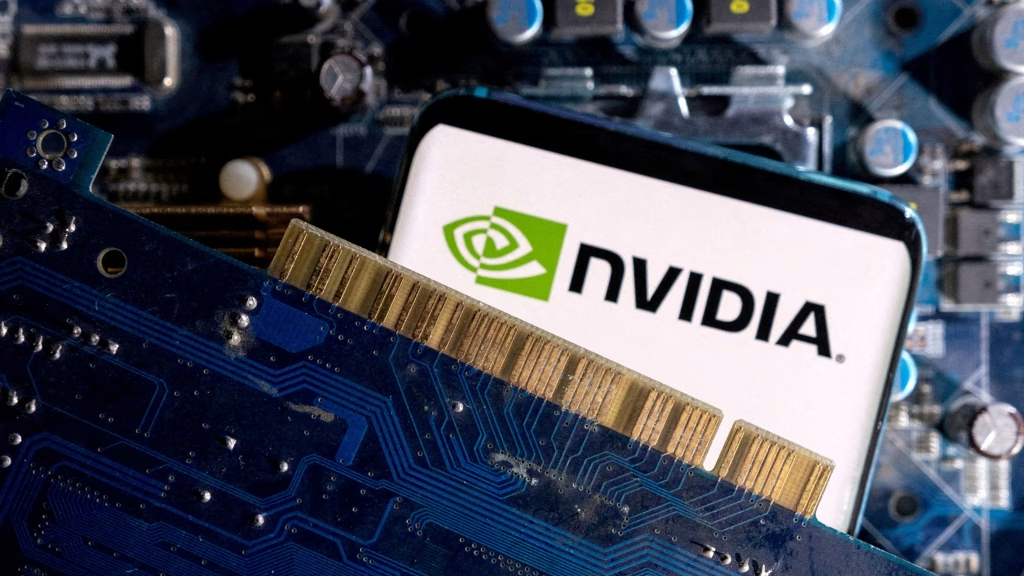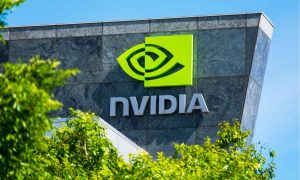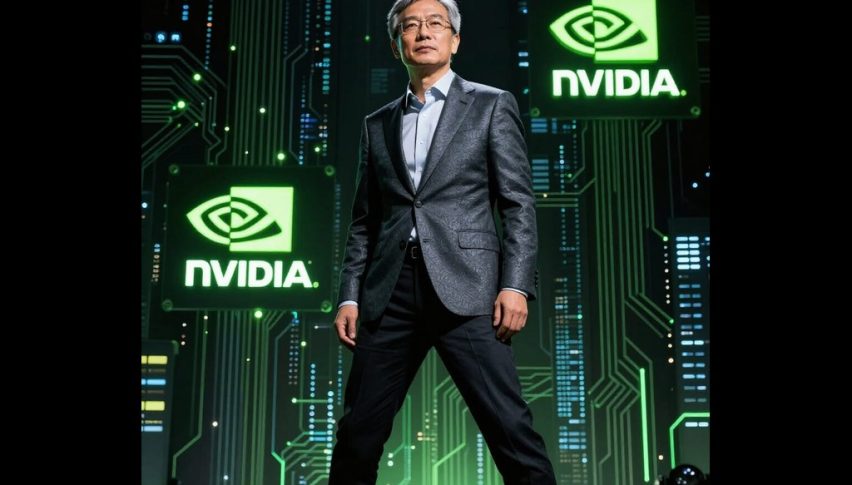China’s AI Chip Ban Hits Nvidia (NVDA) Hard: Shares Eye Sub-$140 Plunge
Nvidia (NVDA) dropped 3% on Wednesday after Chinese regulators prohibited Chinese tech companies from buying some of the AI giant's chips.

Quick overview
- Nvidia's stock fell 3% after Chinese regulators banned local tech companies from purchasing certain AI chips, impacting major clients like ByteDance and Alibaba.
- The ban could lead to a significant revenue loss for Nvidia, estimated between $5 to $10 billion annually, as companies turn to domestic alternatives.
- This move reflects China's strategy to reduce reliance on US semiconductors amid escalating AI competition and trade tensions.
- Nvidia's CEO expressed disappointment over the situation but remains patient, acknowledging the complexities of US-China relations.
Nvidia (NVDA) dropped 3% on Wednesday following a report that Chinese regulators prohibited Chinese tech companies from buying some of the AI giant’s chips. The Cyberspace Administration of China had instructed companies such as ByteDance and Alibaba to stop testing and ordering the RTX Pro 6000D

Historically, China has accounted for about 20% of Nvidia’s revenue, with AI chips playing a major role. Analysts estimate that the ban could reduce yearly sales by $5 to $10 billion as businesses shift to domestic alternatives like SMIC’s lithography tests or Alibaba’s new inferencing chips.
Prolonged prohibition with antitrust investigations (China’s alleged H20 monopoly) causes a 20%+ decline to $140s, putting the AI hype to the test. For information on China exposure, view Q3 earnings. In a strategic AI arms race, this is a tactical setback overall. Nvidia’s “insane bet” on GPUs keeps it at the forefront of the industry, but geopolitics adds a risk premium of $10–20/share.
Hedgeye Risk Management analyst Felix Wang noted after Wednesday’s news that this move underscores Beijing’s efforts to reduce dependence on US semiconductors, amidst increasing AI competition with the US, and to promote domestic chip and tool usage. Semiconductor technology has been a key issue in trade tensions between the two nations.
“The significance of the Chinese AI market, which he views as a rapidly expanding $50 billion market, has been emphasized time and time again by Nvidia CEO Jensen Huang.”
Huang persuaded the Trump administration to lift a US ban on exporting its lower-power H20 chips to China this summer. Under the agreement, Nvidia shared its sales revenue with the US government. Analysts pointed out that since the Chinese government wouldn’t want companies to essentially give money to the US, this deal—still not finalized—might push Chinese firms toward domestic chip suppliers.
Nvidia is developing a less powerful version of its Blackwell chips for China, according to Huang’s statement in August. During a briefing in London on Wednesday, Huang responded to questions about China by saying,
“I believe that we could only be in service of a market if the country wants us to be.” He added, “I’m disappointed with what I see, but they have bigger agendas to work out between the United States and China, you know, and I understand that, and we’re patient about it.”
The Wall Street Journal reported that Alibaba is testing a new AI inference chip and that several major Chinese companies are developing alternatives to Nvidia’s H20 chips.
- Check out our free forex signals
- Follow the top economic events on FX Leaders economic calendar
- Trade better, discover more Forex Trading Strategies
- Open a FREE Trading Account


